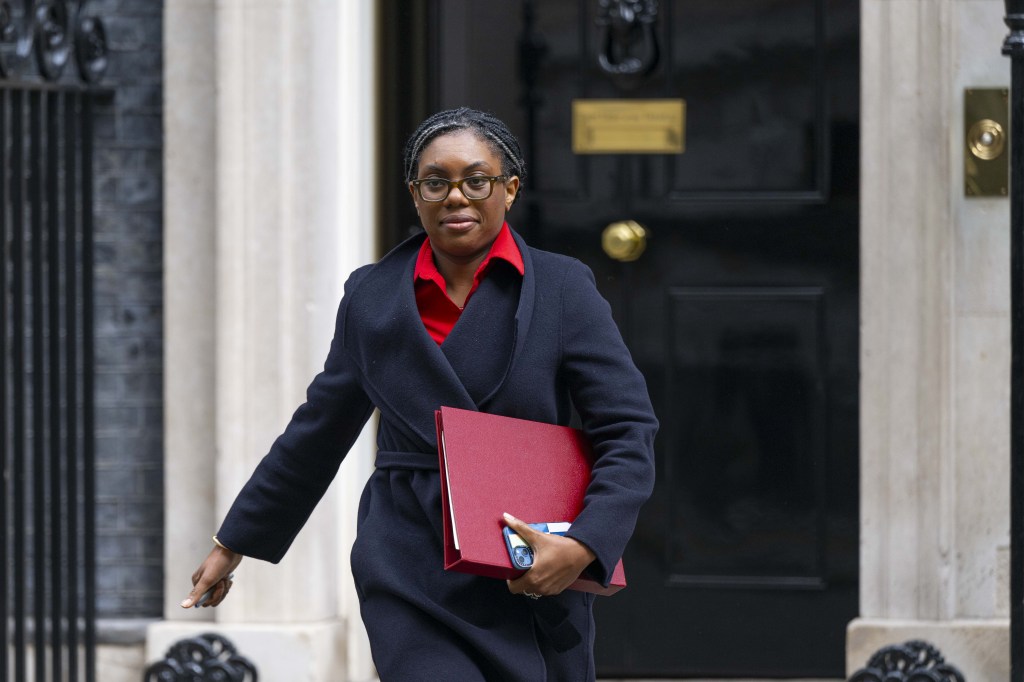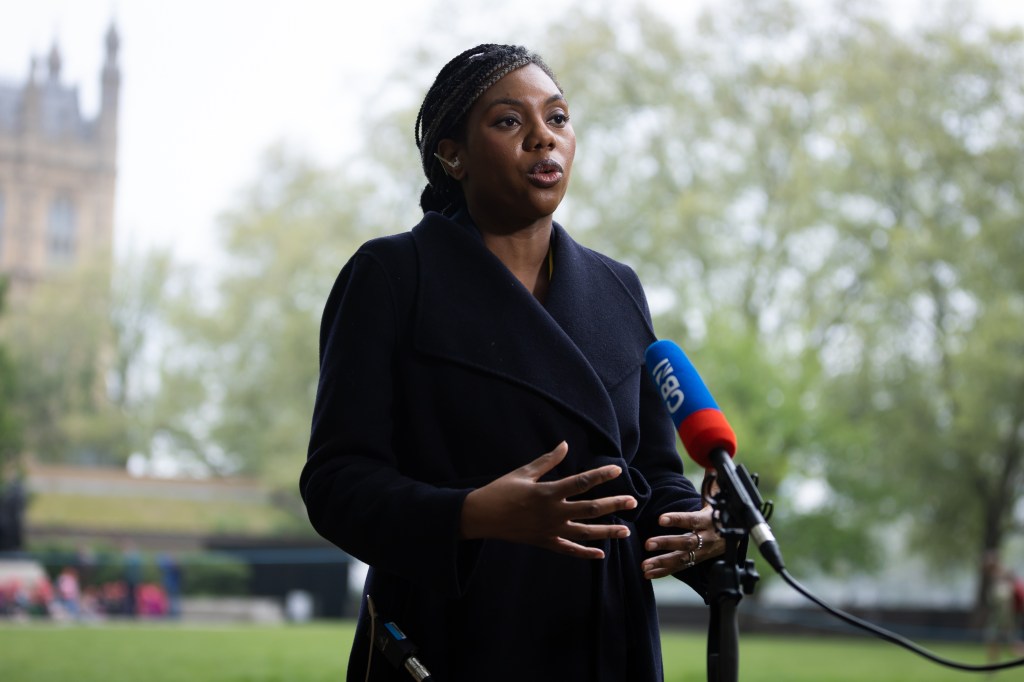Kemi Badenoch rattled by questions about reality of barring trans people from single-sex spaces

Kemi Badenoch discussed the finer details of the Tories new pledge (Carl Court/Getty Images)
Women and equalities minister Kemi Badenoch was rattled by BBC questioning over the technical aspects of the Tories’ newly-announced pledge to rewrite Equality Act’s definition of sex to mean ‘biological sex’, making it easier to bar trans people from single-sex spaces.
On Sunday evening, (3 June) the Conservatives pledged to update legislation to allow trans women to be banned from single-sex female spaces if they win the general election, by rewriting the Equality Act to make the protected characteristic of ‘sex’ mean ‘biological sex’, rather than ‘legal’ sex.
It is the first election pledge the Tories have issued regarding equality issues since the general election was announced for July 4, with prime minister Rishi Sunak saying the move would make it “simpler for service providers for women and girls, such as those running sessions for domestic abuse victims, to prevent biological males from taking part”.
Following this policy announcement, Badenoch appeared on BBC Radio Four on Monday morning (3 June) and was grilled by presenter Mishal Husain over how the policy would work in reality, including what paperwork would be required by a service provider to prove that a trans person was indeed trans.
When probed if the relevant paperwork would be an ‘original’ birth certificate – as opposed to an updated one which trans people can apply for once they have a Gender Recognition Certificate (GRC) – Badenoch said it depended on what the “circumstances”.
“If we look at the origin of the Gender Recognition Act and the Equality Act it is quite clear that the intentions in the law are being misinterpreted just because of social changes, and what we are trying to do is re-emphasise that sex in the law means biological sex,” Badenoch said.
“It always has done but there has been a lot of misinterpretation and we are adding that clarification so that the law is clearer.”

Husain asked once more if an original birth certificate is the documentation service providers would look at when deciding whether to admit someone to a single-sex space or not and Badenoch replied an original birth certificate is where biological sex is recorded.
“For the vast majority of people this is not going to be an issue. The change is impacting those people who have not been clear on what it means for someone to be transgender […] the holding of a gender recognition certificate, what it means and we are re-emphasising not just what the law says but that there have always, always been exceptions under the Equality Act for single-sex spaces.”
Husain brought up the fact once someone has a GRC they can apply to correct their birth certificate, which would update their gender marker, and whether these would be invalid if a trans woman wants to access a single-sex space.
Failing to explain how biological sex would be proven in real-life situation, Badenoch said the matter is “is not a paperwork issue” but a “practical issue”.
“I am sure you have thought this through… to be able to legally bar someone who is not biologically female from somewhere like a rape crisis centre, what is the paperwork you would be demanding or excluding them from using to back up their claim?” Husain then asked.
Badenoch replied that the line of question but forward over the original versus updated birth certificates implied “no one should be able to do anything at all”.
When pressed further, Badenoch said decisions would be based on biological sex as it is at birth opposed to legal sex, adding the situation at the moment is that people are coming to single-sex spaces such as rape centres when they are “visibly of a different sex”.

“Mishal, I really appreciate that you are trying to get into very technical scenarios… trying to make this a paperwork issue is, I’m afraid, a distraction and is trying to trivialise what is a very serious issue,” the equalities minister went on to say.
When the proposed policy change was announced Badenoch said: “Whether it is rapists being housed in women’s prisons, or instances of men playing in women’s sports where they have an unfair advantage, it is clear that public authorities and regulatory bodies are confused about what the law says on sex and gender and when to act – often for fear of being accused of transphobia, or not being inclusive.”
Sunak stated the “safety of women and girls is too important to allow the current confusion around definitions of sex and gender to persist”.
He said the Tory party believe making the change “will enhance protections in a way that respects the privacy and dignity of everyone in society” because the party is “taking an evidence-led approach to this issue so we can continue to build a secure future for everyone across the whole country”.

